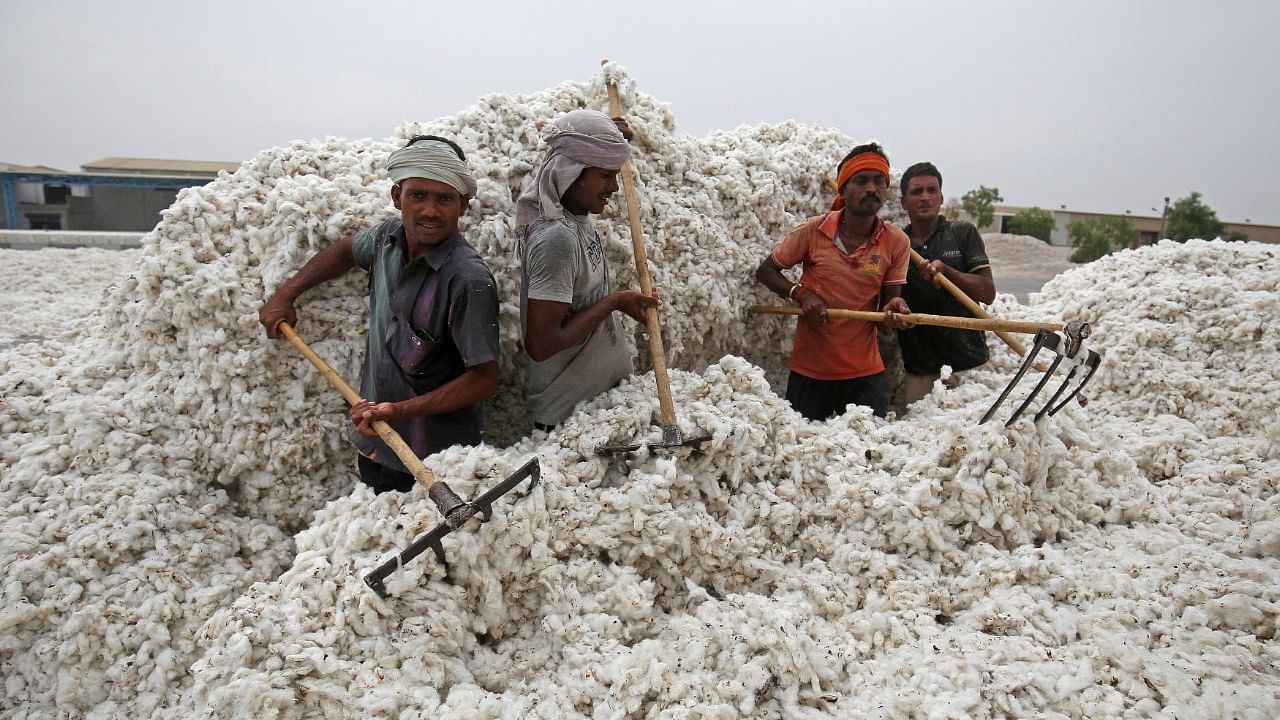
Pointing to the ever-increasing price of cotton which now costs around Rs 95,000 per candy, the Tiruppur Exporters’ Association on Monday placed a slew of demands before Union Textiles Minister Piyush Goyal to offset their losses and ensure that they don’t lose out to competing countries like Bangladesh and Vietnam.
The demands include the removal of 11 per cent cotton import duty for duty-free import of 40 lakh bales immediately, to stabilize the cotton prices, and to impose mandatory declaration of cotton stock with all stakeholders to curb the hoarding and speculation by the traders under MCX and NCDEX.
The Tiruppur Exporters’ Association (TEA) also demanded a specific scheme for MSMEs like Emergency Credit Line Guarantee Scheme (ECLGS) to bail out the knitwear garment sector reeling under liquidity crisis and struggling to service their loan to banks and sustain the business. It said 95 per cent of the garment units are classified as MSMEs.
In a memorandum, the exporters pointed out that the sector is now pushed into a “beleaguered situation” due to an unprecedented increase in cotton prices, hovering around Rs 95,000 per candy and expressed apprehension that it may touch Rs 1 lakh soon.
“The fortune of the textile industry is highly linked with the fortune of cotton farmers and unfortunately, the game played by the cotton traders is disturbing the entire textile industry, accessories, dyes and chemical suppliers, exports and employment including banks,” they said.
The exporters' body also pointed out that a constant increase in the price of cotton has resulted in losses for them as buyers do not increase the price after signing the agreement notwithstanding the rise in the price of raw materials.
“Moreover, buyers have the option to source garments from our competing countries like Bangladesh, Vietnam, Cambodia, Turkey as they enjoy tariff-free advantages in the EU market,” a leading exporter said. The TEA said knitwear exporting units are now facing the placement of lower quantity orders from buyers compared to the corresponding period of last year due to the impact of the Russia-Ukraine war.
Exporters have been complaining that the unprecedented increase in the prices of raw materials like cotton and yarn coupled with the hike in prices of accessories have impacted the MSMEs mainly on the liquidity front forcing them to operate on a “Hand to Mouth” basis for the past 15 months.
Check out latest DH videos here